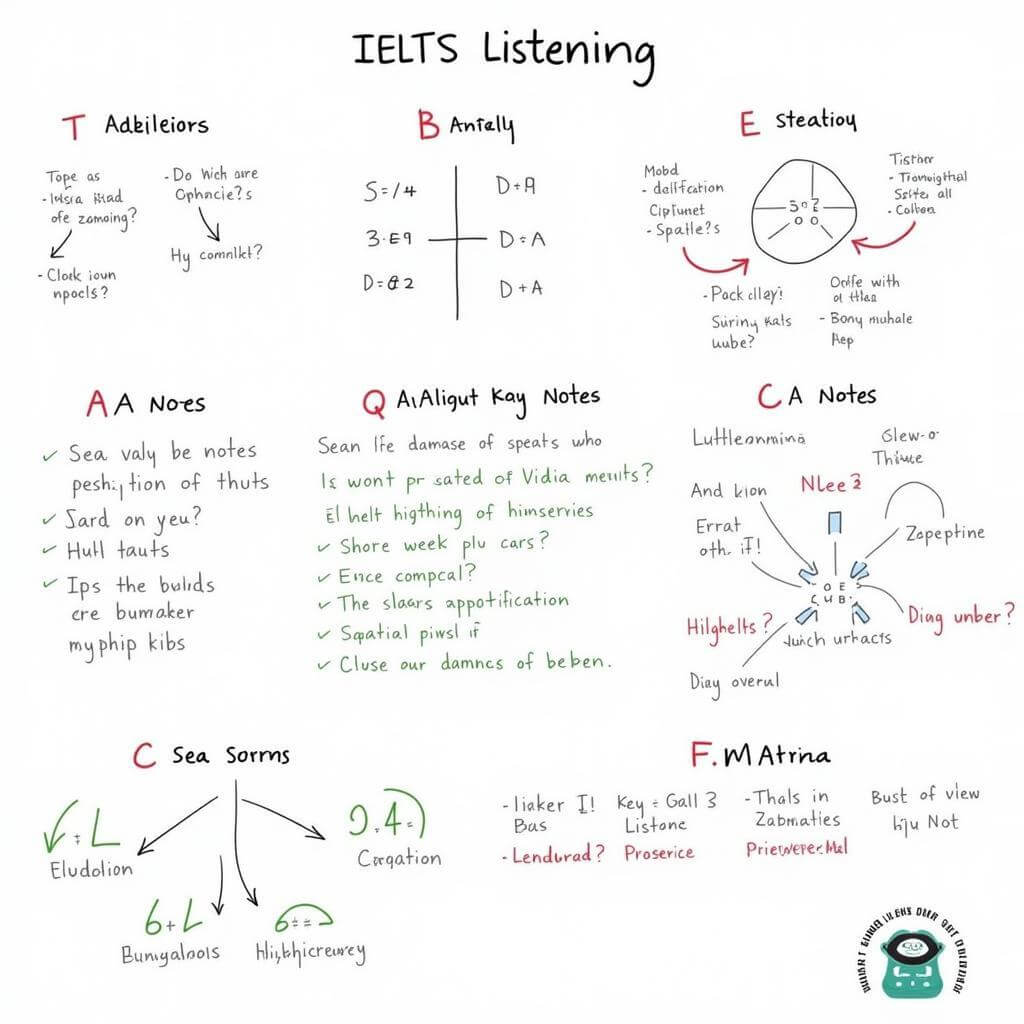The IELTS Listening test is a crucial component of the overall exam, requiring candidates to comprehend and retain spoken information effectively. Mastering this skill is essential for achieving a high score in the Listening section. This article will explore various strategies and techniques to enhance your ability to retain spoken information, specifically tailored for IELTS Listening preparation.
Understanding the Importance of Information Retention
Retaining spoken information is a fundamental skill for success in the IELTS Listening test. It involves not only hearing the words but also processing, understanding, and remembering the content accurately. This skill is particularly challenging due to the fast-paced nature of the audio recordings and the requirement to answer questions simultaneously.
How to use subtitled videos to prepare for IELTS listening can be an effective way to improve your retention skills. However, it’s essential to develop strategies that work specifically for the IELTS Listening format.
Effective Strategies for Improving Information Retention
1. Active Listening Techniques
Active listening involves fully concentrating on the speaker and engaging with the content mentally. Here are some techniques to practice:
- Visualization: Create mental images of the information being discussed.
- Summarization: Mentally summarize key points as you listen.
- Questioning: Ask yourself questions about the content to stay engaged.
- Prediction: Anticipate what might come next in the conversation.
- Connecting: Relate new information to your existing knowledge.
2. Note-Taking Skills
Developing efficient note-taking skills is crucial for retaining information during the IELTS Listening test. Consider these strategies:
- Use abbreviations and symbols to write quickly.
- Focus on keywords and main ideas rather than full sentences.
- Organize your notes spatially on the page to reflect relationships between ideas.
- Underline or circle key information for easy reference.
- Practice different note-taking methods to find what works best for you.

3. Memory Enhancement Techniques
Improving your memory can significantly boost your ability to retain spoken information. Try these methods:
- Chunking: Group related pieces of information together.
- Mnemonics: Create memorable associations for complex information.
- Repetition: Mentally repeat key points immediately after hearing them.
- Association: Link new information to things you already know.
- Mind mapping: Create visual representations of the information.
4. Concentration Exercises
Enhancing your concentration can lead to better retention. Practice these exercises:
- Mindfulness meditation to improve focus.
- Progressive muscle relaxation to reduce tension and increase alertness.
- Brain training games that challenge working memory.
- Focused breathing exercises to calm the mind and improve concentration.
- Regular physical exercise to boost overall cognitive function.
Applying Retention Strategies to IELTS Listening Tasks
To effectively use these strategies in the IELTS Listening test, consider the following applications:
- For multiple-choice questions, visualize the options as you listen.
- In form-filling tasks, quickly jot down key information using abbreviations.
- For map or diagram labeling, create mental images of the locations described.
- In matching exercises, use association techniques to connect related information.
- For sentence completion, focus on predicting the missing words based on context.
Common Mistakes to Avoid
When working on improving retention of spoken information, be aware of these potential pitfalls:
- Overreliance on written text: Avoid focusing too much on reading questions at the expense of listening.
- Passive listening: Don’t let your mind wander; stay actively engaged with the audio.
- Fixation on missed information: Learn to move on quickly if you miss something, rather than dwelling on it.
- Ignoring context clues: Pay attention to tone, emphasis, and other non-verbal cues that can aid comprehension.
- Neglecting practice with various accents: Familiarize yourself with different English accents to improve overall understanding.
Practice Techniques for Improving Retention
To enhance your retention skills for the IELTS Listening test, incorporate these practice techniques into your study routine:
- Listen to podcasts or TED Talks on unfamiliar topics and practice summarizing the main points.
- Watch news broadcasts and take notes, then compare your notes with online transcripts.
- Participate in English conversation groups to practice real-time listening and retention.
- Use IELTS practice tests with increasing difficulty levels to challenge your retention abilities.
- Record yourself summarizing spoken information and analyze your accuracy and completeness.
Remember, improving retention of spoken information is a gradual process that requires consistent practice and patience. By incorporating these strategies and techniques into your IELTS preparation, you can significantly enhance your performance in the Listening section.
In conclusion, mastering the art of retaining spoken information is crucial for success in the IELTS Listening test. By employing active listening techniques, honing your note-taking skills, utilizing memory enhancement methods, and practicing concentration exercises, you can dramatically improve your ability to retain and recall spoken information. Remember to apply these strategies consistently in your practice sessions and gradually increase the difficulty level of your listening materials. With dedication and the right approach, you can achieve the IELTS Listening score you desire.